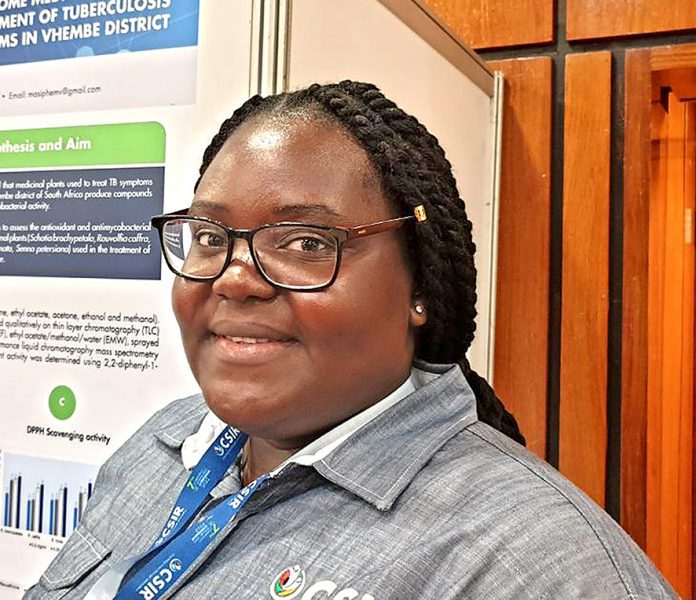Innovation-driven entrepreneurship was put under the microscope this week as young researchers and scientists from all over South Africa came together to present solutions to the country’s problems at the Council for Scientific and Industrial Research Council’s (CSIR) seventh Emerging Research Symposium in Pretoria.
From research on plants used for traditional medicine to treat tuberculosis (TB), to converting coal fines into gas for use in stoves and heaters, and blood tests to diagnose pancreatic cancer, the CSIR international convention centre was abuzz with post-graduate students and researchers who came together to share their bright ideas.
Maano Masiphephethu, a PhD candidate in microbiology at the University of Venda, is looking into medicinal plants that are used by traditional healers to treat TB. She is assessing whether the muthi does indeed kill TB, and is looking at what the plants contain, in the hope she can use it to develop alternative treatments for TB.
Such a treatment would be cheaper than conventional medicines and benefit those who have developed resistance to antibiotics.
The 31-year-old from Lufhule village in Venda says her research was inspired by the fact that TB treatment focused on synthetic drugs and ignored indigenous knowledge in medicinal plants that could contribute towards the development of cheaper drugs.
She says she hopes her research will also ensure that the plants are protected.
Her study focused on five plants – the mulubi (schotia brachypetala), mubiribiri (rauvolfia caffra), mundadzi (schinus mole), mutshetshete (known as buffalo thorn) and munembembe (senna petersiana) – which are found in the Vhembe district.
Masiphephethu, who is just a few months away from submitting her thesis, said “preliminary screening has shown that mubiribiri and mundadzi have activity against TB”, explaining that this means they could treat TB.
She was one of the 39 emerging researchers that exhibited their research in a poster format or as an oral presentation at the two-day symposium, which started on Tuesday.
Vaal University of Technology master’s student in chemical engineering Ntombifuthi Hlatshwayo wants to solve the issue of pollution by producing methane from coal fines (a waste by-product of the coal mining process) at mining operations.
University of Free State PhD candidate Teboho Mooko presented his research on why HIV-positive patients with chronic kidney disease are failing to suppress the virus even when they comply with antiretroviral treatment, and the factors that contribute to them shedding the virus in the fluid when undergoing dialysis.
Mooko, who specialises in internal medicine, explained to Sunday World that there are two kinds of dialysis used to treat chronic kidney disease: one that is done in hospital with a machine, and another that is implanted, and patients are trained on how to administer the solution and to discard it. They need to do this four to five times a day.
The 28-year-old said the presence of the virus in the fluid poses a risk of infection to those who may come in contact with it.
Mooko, who plans to establish his own research company that specialises in clinical trials, says his study will contribute towards finding ways of improving treatment for people with HIV.
Pamela Maimela, a master’s student in medical biochemistry at the University of Cape Town, is working to diagnose pancreatic cancer with just a blood test. It would be a game changer in the fight against the disease, which is usually diagnosed too late.
The symposium, which is held every two years by the CSIR, an agency of the Department of Higher Education, Science and Innovation, was aptly held under the theme “innovation through entrepreneurship”.
Scientist and founder and CEO of CapeBio Daniel Ndima gave the keynote address, emphasising the importance of turning innovation into business.
The 35-year-old Ndima said: “The [Covid-19] pandemic was not only a challenge [for South Africa] but an opportunity to assess where we are [in terms of science, engineering and technology]. If you haven’t thought about your contribution during the pandemic, you will be left behind.
“Science, engineering and technology is the economy and the answer to the challenges we face as a country.”
CapeBio was established in 2018 and he said it has created employment opportunities for 75 young people.
Follow @SundayWorldZA on Twitter and @sundayworldza on Instagram, or like our Facebook Page, Sunday World, by clicking here for the latest breaking news in South Africa. To Subscribe to Sunday World, click here.



